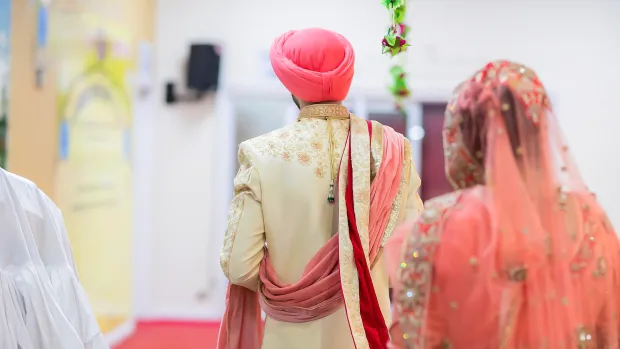B.C.’s top court has annulled the marriage of a Sikh couple who failed to consummate their relationship in the months between their civil wedding and a religious ceremony planned to consecrate their union.

B.C.’s Appeal Court says an “honest and sincerely held religious belief’ should be considered grounds for avoiding the sex needed to consummate a marriage.
The province’s top court last week annulled the marriage of a Sikh couple who got married in a civil wedding but claimed they never slept together because they broke up while waiting for a religious ceremony to consecrate the union.
A lower court judge had refused to annul the wedding because the religious reasoning did not meet the long-held legal test for a failure to consummate a marriage — “physical inability or a psychological incapacity.”
The appeal court judges found that “in the multi-cultural society that our nation reflects” the law has to be applied “in accordance with the cultural norms of the parties seeking annulment.”
“The [B.C. Supreme Court] judge placed too much emphasis on the parties’ agreement not to consummate,” the ruling says.
“[The judge] gave insufficient weight to the fact that the agreement reflected an underlying aversion to consummation before completion of a Gurdwara ceremony.”
‘Caprice is not a sufficient ground’
The decision contrasts the long legal history of marriage-related law with the realities of a diverse Canada.
According to the ruling, the “seminal Canadian” precedent on annulment is a 1942 Supreme Court of Canada case known as Heil v Heil.
In that situation, a doctor married a woman he met in Vienna in 1937 during his studies.
The couple boarded the Empress of Britain for Canada, whereupon she immediately set off to visit an aunt in New Hampshire and he headed off to look for work.
According to the decades-old judgment, sex eluded the couple in the year that followed; they saw each other fleetingly as he moved to Ottawa, then Timmins, and she set off back to Europe.
She claimed she had “fulfilled her marital duties” but Canada’s top court didn’t believe her.
They also didn’t accept a trial court judge’s conclusion that “she was mentally incapable of sexual relationship between man and woman.”

That set the grounds for a standard that is still accepted today.
“The refusal of intercourse is the result of obstinacy, which is a creature of her will, and not the result of an invincible repugnance to the physical life of marriage,” the Supreme Court of Canada judges wrote.
“The mere refusal of marital intercourse due to caprice is not a sufficient ground to warrant a decree in nullity.”
‘Effectively, the end of the relationship’
In the B.C. case, the woman — P.K. — met her would-be husband — G.S. — after coming to Canada as a student in 2017.
They married in February 2019.
“They wanted to marry in a civil ceremony so they could live together, which otherwise would be contrary to their religion, but put off consummation until they had undergone a traditional Gurdwara ceremony,” the appeal court decision says.
After the civil wedding, they claimed they lived separately in the same house, which they shared with friends.
G.S. suffered from depression and P.K. claimed they began arguing.
“I decided to get out of that place because it was affecting my studies and my work also. So I just decided to get out of that thing because it was — was affecting my health and my emotional health so much,” P.K. testified in lower court.
“That was, effectively, the end of the relationship,” the appeal court decision says.
But the lower court judge refused to undo the marriage.
She said it appeared P.K. and G.S. had simply “decided” not to consummate their wedding.
The judge said P.K. was not claiming “the marriage was unable to be consummated because one of the parties is unable to engage in intercourse arising from physical inability or a psychological incapacity.”
Not necessary or appropriate today
Last year, a B.C. Supreme Court judge annulled a marriage after finding that the husband could not maintain an erection.
That case delved into the graphic legal history of cases in which courts once demanded physical evidence of impotence.
“I am not satisfied that this extremely strict standard of proof is necessary or appropriate today,” wrote Justice Wendy Baker.
Likewise, in considering the reasons P.K. and G.S. were incapable of consummating their marriage, the appeal court found the lower court judge “concentrated too heavily on the physical and psychological aspects of capacity in the traditional sense.”
“They wished to live together, but in accordance with their cultural norms, could not do that without a ceremony. Hence the civil ceremony. But once living together, they could not consummate the marriage in accordance with their religion until they had undergone the traditional Sikh Gurdwara ceremony, and so did not consummate it,” the judges wrote.
“The true aversion to consummation arose from their religious beliefs, creating a genuine incapacity.”

